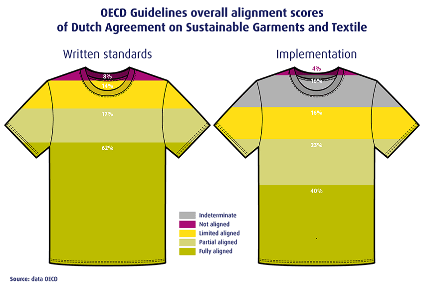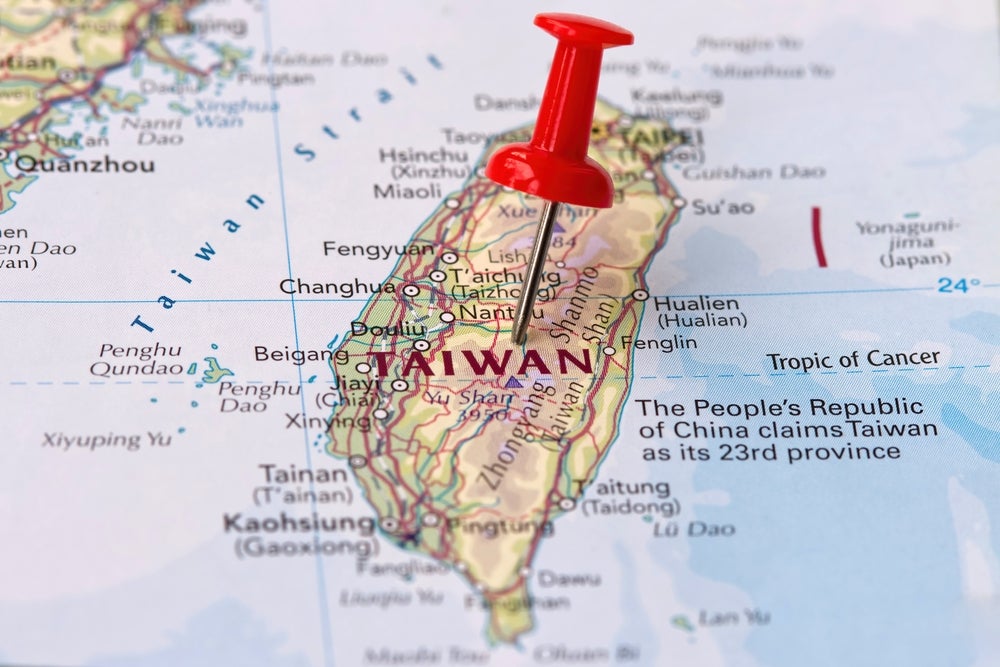
The Organisation for Economic Co-operation and Development (OECD) has carried out an alignment assessment around how far the Dutch Agreement on Sustainable Garment and Textile (AGT) corresponds to its guidelines for the garment and footwear sector and says while it is largely in line with the guidelines, further improvements could be made.
Launched in 2017, the OECD Due Diligence Guidance for Responsible Supply Chains in the Garment and Footwear Sector (the OECD Garment and Footwear Guidance) sets a common framework for understanding supply chain due diligence. It has been approved by 48 governments and endorsed by business, trade unions and civil society and seeks to be aligned with the UN Guiding Principles on Business and Human Rights in relation to human rights due diligence.
The OECD Garment and Footwear Guidance establishes a six-step framework for conducting responsible business conduct (RBC) due diligence, in order to identify and address risks of adverse impacts in a company’s supply chain.
Its analysis of the AGT runs from January 2019 to January 2020. It measures the written standards — any documentation developed by the AGT that establishes expectations for companies on due diligence or establishes an assessment framework for companies — and the implementation — any documentation developed by the AGT that establishes expectations for companies on due diligence or establishes an assessment framework for companies.
Across all aspects, 62% of the AGT standards fully and 17% partially meet the guidelines. For the implementation, this is 40% and 23% respectively.
See Also:
Within its report, the OECD says the AGT has “many strengths”, including the prevention of abuses, the prioritisation of risks, the tailor-made solutions for small and medium-sized enterprises, the involvement of top management, and the focus on purchasing practices.
How well do you really know your competitors?
Access the most comprehensive Company Profiles on the market, powered by GlobalData. Save hours of research. Gain competitive edge.

Thank you!
Your download email will arrive shortly
Not ready to buy yet? Download a free sample
We are confident about the unique quality of our Company Profiles. However, we want you to make the most beneficial decision for your business, so we offer a free sample that you can download by submitting the below form
By GlobalDataBut it also says there is room for improvement. For example, in the evaluation of companies, there is too much attention for internal control measures, the prioritisation of the correct risks can be sharper, gender must be better taken into account in the assessment process and the assessment of large companies could be organised more according to their scale and size.
The way in which stakeholders in the textile chain have access to the complaints and disputes mechanism should also be improved.
“In general, the OECD Secretariat found very few points of non-alignment in the AGT Assessment Framework, meaning that most indicators of due diligence could be identified, even if they were not all fully aligned. In a number of cases, areas for improvement were the result of inconsistencies across how account managers apply or interpret the assessment framework,” the report stated.
“We welcome this comprehensive report,” says Pierre Hupperts, chairman of the AGT. “It shows the added value of the covenant and indicates that we use the right approach for many activities. It also gives us clear directions where we can comply better with the OECD guidelines, which also guide the Dutch government’s IRBC policy. We see the report as an incentive to further fine-tune our processes and will start working on it.”
The AGT was criticised last week after an investigation found member affiliates failing to adequately address specific problems around human rights risks in the factories they work with.







